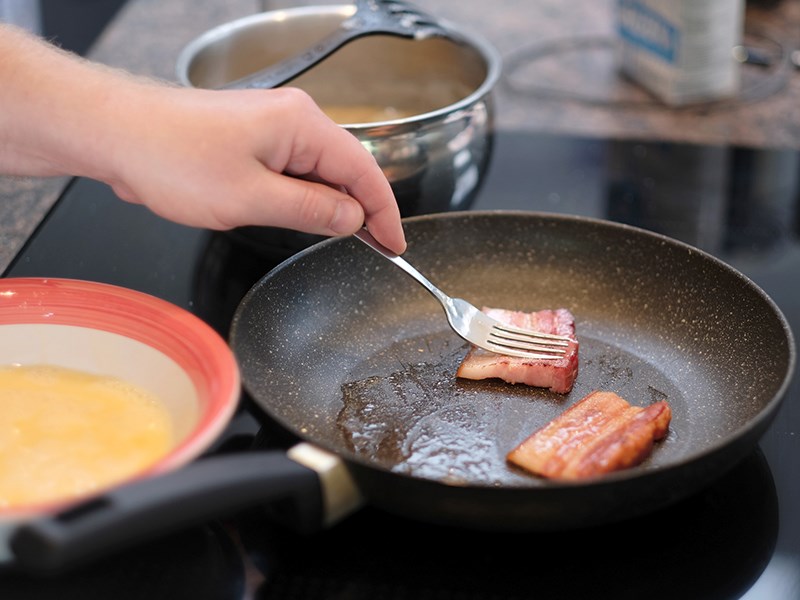Firstly, to be forthright while acknowledging the sage advice of my team of lawyers, this article does not contain information on frying bacon, or any plant-based substitute of the popular food, while clothing deficient or otherwise. My column has nothing to do with fried food, general nudity, or any hybrid of the two, whatsoever.
Truthfully, I have noticed the catchiness of an article’s title can be a major influencer in the reader’s decision to invest time reading the content of the essay, or not, myself included in that assessment.
So, with my apologies and in that spirit, this piece of writing is really on the topic of trust. When healing from mental health ailments or recovering your “self” after long-term addiction, trust in someone or something is required, at some point in the process.
What is trust? Sometimes dictionary definitions only offer a preview or free sample of a word, however, it is in the bumpy exchanges of everyday life where the rubber meets the road and consequences, good or bad, happen. Trust is one of those words.
Trust is a word forged from molten-liquified steel and anchored in stone.
Misplaced trust can be the cause of emotional and psychological blunt force trauma, which can turn into stress-related mental disorders such as post-traumatic stress disorder or severe substance abuse.
Total inability to trust can lead to self-segregation, painful aloneness and a life not fully lived. A person and their true potential are tragically unrealized, and one can live a life draped in the heavy sheets of clinical depression.
A baby trusts its mother for nourishment and safety, but that behaviour is seared into our genetic code and part of an instinct for survival across all mammalian species. A newborn’s trust in a mother is the seed freshly planted.
The trust which I am referring to is a decision. Maybe the most consequential decision in life.
Trust is letting go, letting go completely and fully believing someone else’s actions are in your best interests. Accepting someone, or something else can be solely motivated with your success as their main goal. Seems like a simple concept, however, for many people letting go is the hardest decision in life.
Letting go is, at first, a place of vulnerability with feelings of defenselessness. If your experience is of an unkind, untrustworthy world, who can we trust?
Without letting go we project the unhealthy, disconnected past onto the blank screen of the future. The dysfunction repeats itself as a self-fulfilling prophecy and the cycle of distrust continues, through a lifetime and even through the generations.
The courageous act of letting go and building relationships with trust feels risky but can have transformative rewards.
If you were hoping to find a Healthy Living article on the topic of frying bacon in the nude, just choose the pancakes and maple syrup instead.
Trust me.
Robert Skender is a Powell River freelance writer and health commentator, and a regular contributor to the Peak.



